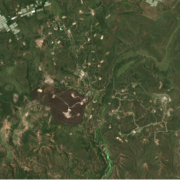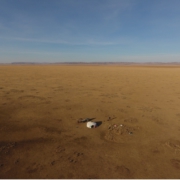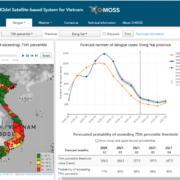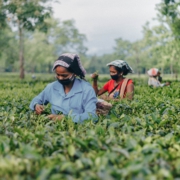Why Conscious Consumerism can Help Unlock Sustainability for Coffee Farmers
Original post here.
From the move to re-usable coffee cups and paper straws, to the purchasing of products from retailers with strong ethics statements, coffee-drinkers are becoming increasingly aware of the impact of their consumption habits. To continue to meet demand, many businesses are implementing sustainability initiatives, showcasing their commitments to ethical procurement processes, and demonstrating their corporate social responsibility. In coffee, sustainability is a key part of this effort towards tackling climate change through changing consumption habits.
Farmer resilience has never been so sorely tested
The, rapid rise in demand for coffee, resulted in a reversal of previously sustainable coffee farming practices and as consequence contributed to greater environmental degradation, climate change, and a corresponding decline in rural resilience. It’s a potent mix that has had far-reaching effects, particularly on the 25 million smallholder coffee farmers in the world’s developing nations who must compete in a global marketplace, manage their farmland for long term sustainability, mitigate the impact of climate change, and make ends meet. Due to this environmental degradation, in producer countries like Kenya coffee production has fallen dramatically over the last three decades despite the quality and desirability of their coffee.
On top of that there is the impact of the Covid-19 pandemic. This has had a further damaging impact on the returns farmers can expect to achieve from their crops this season. With travel and logistics heavily impacted by lockdowns and available farm labour significantly reduced, just getting harvested coffee cherries to market is now a major challenge. The full impact will only be known in time but this was a further crisis smallholder farmers can ill-afford, and may lead to farmers abandoning coffee as their main cash crop.
Sustainability means industry and consumers working together
This will in turn increase the need for the coffee industry to rally behind sustainability initiatives that promote ethically produced coffee that supports farmer livelihoods. Conscious consumers must also play their part. Organisations like Fairtrade, Rainforest Alliance, and 4C have made great strides in communicating the importance of ethical consumption in the coffee industry. Working closely with coffee farming communities, their certifications are now well-recognised worldwide and have become more influential with consumers in the major coffee-consuming countries.
Such accreditations have played a major role in advancing the cause of smallholder farmers, but with the increasing impact of climate change, and Covid-19 pandemic, further measures are needed. Farmers will benefit more from new technology that supports sustainable farming at the smallholder level.
Supporting technologies that ensure sustainability from the ground up are key to making ethically motivated coffee consumers happy. Knowing where your beans come from and how they were farmed has never been so important. Investing in reputable solutions, like the UK Space Agency-supported ACCORD programme, helps organisations throughout the coffee supply chain achieve the transparency that consumers now respond to, enabling them to demonstrate their commitments to the sustainability of the coffee industry, environment, and, ultimately, the producers themselves.
Technology is a key enabler for a sustainable farming
Embracing a technology-led approach the ACCORD programme equips coffee farmers with a sophisticated data-driven crop management tool and precise weather advisory, delivered through simple technology: SMS messaging. Such data-driven technologies complement and modernise traditional farming practices, providing easy-to-use and actionable insights via SMS straight to a farmers’ mobile phone.
Applying these ‘inputs’ in a timely, effective, and efficient manner is key to fostering sustainability. ACCORD supports farmers in adopting more environmentally-friendly farming techniques through accurate local weather forecasting and condition-specific crop management advice, informing them precisely when and how to best protect their plants. This reduces the impact of coffee farming on the local environment through more efficient use of inputs.
By providing an accessible route into sustainable farming practices, ACCORD supports increased yields of high-quality coffee and greater profitability for farms, as well as encouraging practices that lead to a more sustainable environmental management by farmers. Supporting smart-farming through technology-led solutions like ACCORD is an excellent way for coffee organisations to prove their commitment to sustainability, and social and environmental responsibility, to their conscious consumers.
Sustainability is as much about motivating people as it is about crops
Sustainability also comes from the motivations and commitment of those producers themselves. For that commitment to be sustained coffee farming must be seen as a financially sustainable life-choice. But there are major challenges here too, as coffee farmers struggle to make a reliable financial return from their crops. Farmers report being paid as little as 30 KSH ($0.30 USD) per kilogram for their raw coffee even though it can eventually retail at major western chains for more than 100 times that. The consequence of this poor financial return is that young people are rejecting coffee farming, and in many cases leaving the industry to pursue more attractive career alternatives.
As rural populations benefit from improved education and technology becomes ever-more accessible in their areas, technology-led solutions for farmers could themselves become a much-needed incentive to younger farmers, and retain a committed farmer base. If the next generation of farmers can see a solution to sustainability and better returns from the technology they are increasingly attracted to, they are more likely to commit their labour and livelihoods to a continuance of coffee farming.
Smart technology embraces the Next Gen sustainable farmer
ACCORD is one such solution, designed to be both accessible and motivating for farmers. It improves the livelihoods of those farmers by optimising coffee production, ensuring workers are able to gain a sustainable income from their hard work. Insights and actions provided by the advanced data analytics behind the accessible mobile phone delivery provides the intelligence and advice to modernise farming practices, making it easier for farmers of all ages and experiences to manage their crops. The goal is that this accessible technology will motivate farmers and workers to stay in the industry, leading to a sustained workforce for the future.
“Sustainability is as much about people as it is about climate and crops” said Jonathan Sumner, Business Development Director on ACCORD. ”The next generation in Africa needs to see a future in smallholder farming for it to be sustainable – and that undoubtedly means it must be economically attractive. But it also requires a change in attitudes and behaviour, and this is where technology comes in. Using new technology helps address the challenges of crop management and modernises farming practices, but it also makes smallholder farming more attractive as a career choice to the younger generation, and more economically secure. It’s a big potential win-win.”. To find out more, visit: https://earthi.space/category/accord/
International Partnership Programme
The International Partnership Programme (IPP) is a five-year, £30 million-per-year initiative run by the UK Space Agency. It focuses on using the UK space sector’s research and innovation strengths to deliver sustainable economic or societal benefit to developing economies around the world. IPP is part of, and is funded from, the Department for Business, Energy and Industrial Strategy’s Global Challenges Research Fund (GCRF). GCRF is a £1.5 billion fund announced by the UK Government which supports cutting-edge research and innovation on global issues affecting developing countries.










